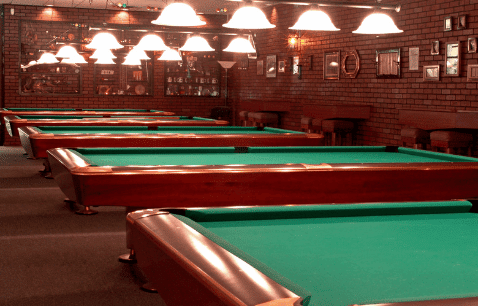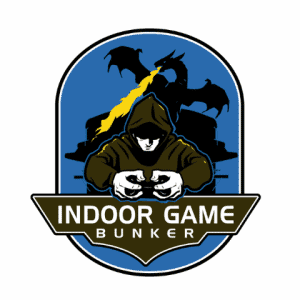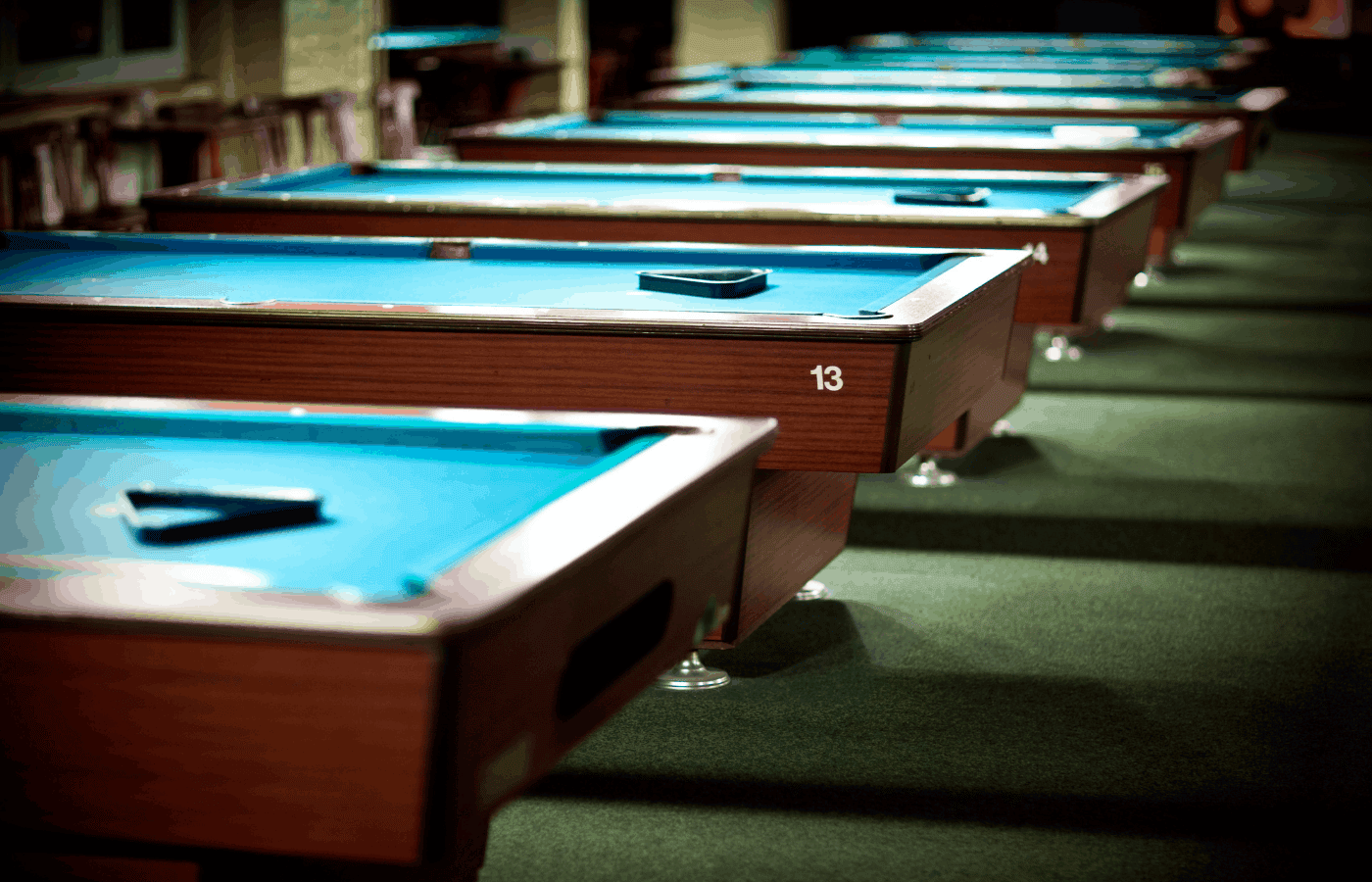Pool halls have been around longer than you probably imagine- with origins dating back to fifteenth-century France. Pool halls first began popping up in North America in the late 1880s and really started gaining popularity in the early 1900s. Originally, pool halls were typically add-on facilities to entertain patrons between other activities, and they were wildly successful.
Modern pool halls are frequently standalone establishments that either make or break it on the merit of the tables and other pool equipment provided alone. As with any business that is so niche, pool hall owners have trouble identifying their patron demographic and appropriately advertising/marketing to keep them coming back. With so many competitors for customer attention, pool halls fade into the background of entertainment venue lists.
While some may think that pool is an old-fashioned game with no chance of making a comeback in this day and age, they are quite mistaken. Pool hall owners simply need to step up their game regarding the other services and entertainment opportunities they provide to their patrons. Rather than relying on table income, you should be cashing in on other games, concessions, and memberships.
How Profitable Are Pool Halls?
According to Entrepreneur, a popular online magazine for small business owners and investors, the average startup cost for a pool hall is between ten-fifteen thousand. The initial startup cost depends on the operation’s size, licenses to operate and serve concessions, and equipment you need to get started. However, with proper marketing and financial planning, Entrepreneur estimates that you can make around $200,000/year with just ten tables.
Of course, you’ll have building rent, utilities, equipment maintenance and repair, and other supplies to factor into your financial plan. While that may eat into that projection of $200,000 per year, you can offset the cost of operating your business by offering services that cost you practically nothing.
To check out some awesome pool hall signs and decor, click here to view the selection on Amazon.
How to Improve Your Income Without Increasing Expenses
For instance, you can boost the popularity, profile, and income of your pool hall by offering any of the following (and they don’t cost you a single cent!) –
- Memberships which offer benefits like unlimited table play, discounted food or drink, or storage of equipment for regular players
- Offer to teach classes to would-be patrons interested in learning the game of pool
- Start a league with a league-funded buy-in-based pot that goes to the winner at the end of the run or season
If you have the startup money to expand your pool hall into a more full-service facility like an arcade, or a bar and grill, that is where you will make the real money. Do not rely on pool tables to make the majority of your income for you. Use pool to draw people in and then sell them complimentary services like food, live music, alcohol, etc.
How Big Should a Pool Hall Be?

There are many factors that go into deciding how large a pool hall should be to make the most profit. You obviously need space for enough tables to keep guests comfortable and accommodated. Ideally, there should be space for nonplayers to hang out comfortably as well.
A standard Pro 8 ft pool table measures eight foot by four foot and requires an additional 64” clearance around the table for the use of a full-size cue stick. That means you need roughly a 14 ½ ft by 18 ft footprint per playing area. Shorter cue sticks are available but unpopular amongst the majority of pool players.
If you are determined to fit more tables in less space, you can get away with roughly 8-12” less space between tables. This spacing will crowd players, however, and require some cooperation amongst table neighbors. On the other hand, if you are focusing on promoting a comfortable environment that’s easy to move around for players and nonplayers alike, you might consider an additional foot clearance around the table.
How to Calculate How Much Space You Need
Let’s say you want to start out with ten tables, like the example from Entrepreneur. To accommodate playing space for those ten tables, you will need an open space that is roughly 3,000 sq. ft. Just a reminder, that’s only for pool tables, leaving no room for anything else at all.
When calculating how much square footage you’ll want for a pool hall business, you’ll want to account for other activity spaces as well. Perhaps you want a kitchen to serve food, booths for guests to relax in, or room for arcade games. To really make the most of your pool hall, you should look for a building 2-3 times the size required for your tables.
In smaller areas without a large population to draw from for patronage, think 6,000-8,000 sq. ft. You should consider expanding your concept for larger metropolitan areas to include a space for music, other games, comfy seating, and a simple bar and grill set up. Something larger scale like this could require anywhere from 8,000 sq. ft. on up, depending on your goals.
Final Thoughts
All of the many reasons that pool halls fail boil down to one fundamental problem. In the entertainment industry, it is critical for small businesses, in particular, to ensure that they are keeping up with the times. Most pool halls refuse to modernize their business plan and/or model.
If you want your customers to keep returning to your pool hall, you must continue to offer your customer base relevant services that are currently in demand in the area. Another pitfall that pool hall owners commonly overlook is a lack of awareness of the competition. Customers will not remain loyal to your establishment if there’s something better being offered right around the corner.
Research your competition regularly to make sure that you are staying competitive within your market. That doesn’t mean just other pool halls; consider any group entertainment venues in the area. Anything from arcades and escape rooms to bars and bowling alleys are serious competition if you aren’t at the top of your advertising/marketing game.

